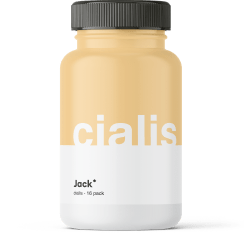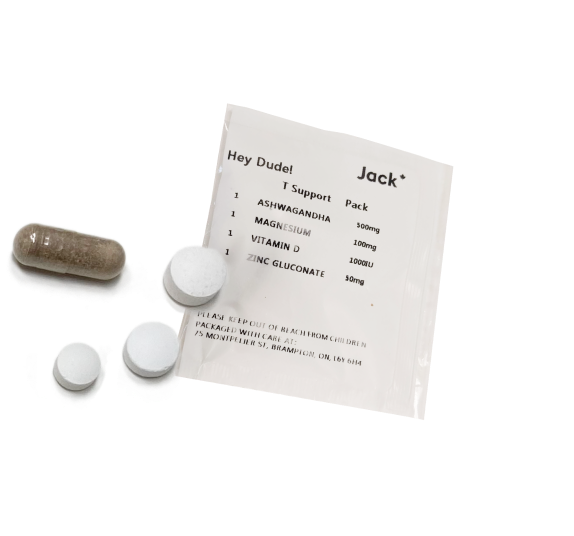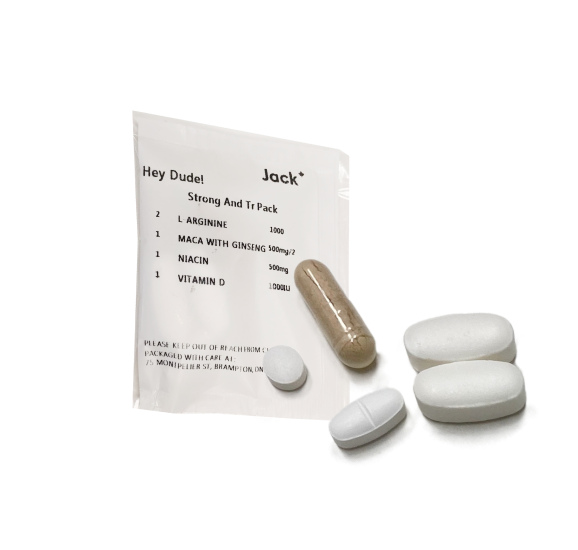Embarking on Testosterone Replacement Therapy (TRT) is a significant decision if you’re experiencing symptoms of low testosterone. This comprehensive guide is designed to provide you with a clear understanding of what to expect from TRT, including the timeline of results, the balance of benefits against potential risks, and the impact of lifestyle factors on treatment outcomes.
Whether you’re considering TRT, prescribed TRT, or have already begun your journey, this guide aims to equip you with the knowledge needed to navigate the process with confidence, ensuring you’re well-informed about the changes that lie ahead, how to manage them, and the ways to optimize your overall health and well-being throughout the course of therapy.
What is Testosterone Replacement Therapy?
Testosterone Replacement Therapy (TRT) is a form of hormone replacement therapy specifically designed to restore and optimize testosterone levels in individuals experiencing a decline in this crucial hormone.
Testosterone, a key player in the endocrine system, influences a wide range of physiological, psychological, and metabolic functions. Its decline can lead to significant health problems, affecting everything from mood, energy levels, and sexual function to muscle mass and bone density.
TRT aims to elevate testosterone levels to a range that is both therapeutic and individualized, ensuring that the benefits outweigh any potential risks. This treatment can be administered in several forms, including injections, patches, gels, and pellets, allowing for flexibility in approach based on patient needs and preferences.
By stabilizing hormone levels, TRT seeks to alleviate symptoms associated with low testosterone, such as fatigue, decreased libido, and loss of muscle strength, thereby enhancing overall quality of life.
TRT's Primary Role in Managing Low Testosterone
The primary role of Testosterone Replacement Therapy is to stabilize and normalize testosterone levels, thus addressing the root cause of low testosterone or hypogonadism. This condition, characterized by the underproduction of testosterone, can stem from a variety of reasons, including age-related decline, endocrine disorders, and certain health conditions.
By boosting testosterone levels, TRT can lead to increased muscle mass and strength, improved libido and sexual function, and enhanced mood and energy levels. It also plays a crucial role in improving bone density, reducing the risk of osteoporosis, and supporting cognitive functions. Furthermore, TRT helps in regulating body fat distribution, improving insulin sensitivity, and enhancing metabolic function, reflecting its comprehensive impact on health.
Monitoring and adjusting the therapy is key to achieving and maintaining optimal results. Physicians assess and measure testosterone levels through blood tests, ensuring that the dosage and regimen are tailored to the individual’s needs.
This personalized approach helps to maximize the benefits of TRT while minimizing potential side effects, such as an increased risk of certain health problems like prostate cancer and cardiovascular disease.
In a nutshell, Testosterone Replacement Therapy serves as a vital treatment option for those experiencing low testosterone levels, offering a pathway to revitalize health and improve quality of life. Through evidence-based practices and individualized treatment plans, TRT can restore hormonal balance, alleviate symptoms of hypogonadism, and enhance physical and psychological well-being.
Timeline of Results: What to Expect from TRT
Embarking on Testosterone Replacement Therapy (TRT) is a journey that unfolds over time, with benefits and changes becoming apparent at different stages. Understanding the timeline of results can help set realistic expectations and provide reassurance as the body adjusts and responds to the therapy.
Initial Effects: Changes in the First Weeks of TRT
In the initial weeks of TRT, patients often experience subtle yet significant changes that indicate the therapy is beginning to exert its effects. These early changes are primarily psychological and metabolic in nature.
- Energy Levels and Mood: One of the first signs of TRT’s impact is an improvement in overall energy levels and mood. Patients may notice a reduction in feelings of lethargy and fatigue, accompanied by a boost in their sense of well-being and motivation. This enhancement in mood and energy can be attributed to the stabilizing effect of TRT on hormone levels, which in turn influences brain function and psychological health.
- Sexual Function: Improvements in sexual desire and function often begin to manifest within the first few weeks. This is a direct result of increasing testosterone levels, which play a crucial role in libido and erectile function. Patients may exhibit increased sexual interest and notice improvements in erectile quality and frequency.
- Sleep Quality: Some individuals report an improvement in sleep quality early in the treatment process. Testosterone has been shown to play a role in regulating sleep patterns, and normalizing levels can help alleviate sleep disturbances.
Progression of Benefits: What Happens in the First Few Months?
As TRT continues beyond the initial weeks, the benefits become more pronounced and encompass a broader range of physical and health-related improvements.
- Muscle Strength and Mass: Between one to three months into therapy, patients often experience noticeable increases in muscle strength and mass. This is due to testosterone’s role in protein synthesis and muscle growth. The augmentation of muscle strength not only enhances physical performance but also supports overall health by improving metabolic function.
- Bone Density: The effects on bone density start to become measurable within the first few months. Testosterone plays a vital role in bone metabolism, and its increase through TRT can help reduce the risk of osteoporosis, particularly in older men.
- Body Composition: Alongside improvements in muscle mass, there’s often a gradual regulation of body fat distribution. TRT can lead to a reduction in body fat, particularly in the abdominal area, while increasing lean body mass. This change contributes to a healthier body composition and lowers the risk of metabolic diseases.
- Cognitive Functions and Quality of Life: Enhancements in cognitive functions, such as memory and concentration, may become more evident. The overall quality of life continues to improve as the combined effects of TRT on physical health, mood, and energy levels contribute to a more active and fulfilling life.
It’s important to note that the timeline and extent of benefits from TRT can vary widely among individuals, influenced by factors such as age, baseline testosterone levels, and individual health conditions. Regular follow-up with a healthcare provider is essential to monitor progress, evaluate side effects, and adjust treatment as needed to ensure the best possible outcomes from TRT.
Documenting Patient Journeys on TRT
Testosterone Replacement Therapy (TRT) is a deeply personal and transformative journey for many patients. Documenting these journeys through personal accounts and long-term transformations provides invaluable insights into the real-world impacts of TRT. These narratives not only highlight the diversity of experiences but also offer hope and guidance to those considering or beginning their own TRT journey.
Personal Accounts: Experiences in the Early Stages of Treatment
In the early stages of TRT, patients often share stories of immediate changes that, while subtle, mark the beginning of their transformation. These accounts typically focus on the psychological and physiological shifts that occur as testosterone levels begin to stabilize.
- Energizing Effects: Many report a significant boost in energy and vitality within the first few weeks. This newfound energy often translates into increased productivity and a greater willingness to engage in physical activities that were previously daunting due to fatigue.
- Mood Enhancement: Improvements in mood and a reduction in symptoms of depression and anxiety are common themes. Patients describe feeling more balanced and less prone to mood swings, contributing to an overall sense of well-being.
- Sexual Health: Enhanced libido and improvements in sexual function are frequently highlighted. For many, these changes bring a renewed sense of intimacy and connection in relationships, which can be profoundly life-changing.
- Sleep Quality: Some patients note improvements in sleep patterns, including deeper sleep and feeling more rested upon waking. Better sleep quality supports overall health and contributes to the positive effects of TRT.
Long-Term Transformations: Patient Experiences After Extended TRT Use
After months or even years of consistent TRT, patients often reflect on the profound and long-term transformations they’ve experienced. These narratives emphasize not just the physical changes but also the impact on quality of life and self-perception.
- Physical and Muscle Strength: Long-term users of TRT share stories of significant improvements in muscle mass and strength, often accompanied by weight loss and better body composition. These changes are not only visible but also enhance physical capabilities and confidence.
- Bone Health: Some patients, particularly older individuals, report reduced signs of osteoporosis and fewer fractures, underscoring the benefits of TRT on bone density and overall skeletal health.
- Mental Clarity and Cognitive Function: Enhancements in cognitive functions, such as sharper memory and better concentration, are common highlights. Patients often describe feeling more mentally agile and capable of handling complex tasks or challenges.
- Emotional Well-being and Relationships: The positive effects of TRT on mood and emotional health frequently lead to improved relationships and social interactions. Patients talk about feeling more connected to others and experiencing a richer, more fulfilling social life.
- Overall Health Improvements: Many long-term TRT patients report a general improvement in health markers, including better lipid profiles and insulin sensitivity. These changes contribute to a reduced risk of chronic diseases and a more vibrant, active lifestyle.
Documenting these journeys through personal accounts and long-term observations provides a comprehensive view of the transformative potential of TRT. While individual experiences vary, the collective narrative underscores the therapy’s capacity to enhance life in profound ways. It’s important for those considering or starting TRT to consult with healthcare professionals, ensuring a personalized approach that maximizes benefits while managing potential risks.
Evaluating the Physical and Mental Impacts of TRT
Testosterone Replacement Therapy (TRT) offers a multifaceted approach to improving health, addressing both physical and mental aspects. The therapy’s impact extends beyond mere symptom relief, fostering significant enhancements in muscle strength, body composition, psychological well-being, and emotional health.
Understanding these impacts can help individuals and healthcare providers assess the potential benefits of TRT in a holistic manner.
Physical Enhancements: Muscle, Strength, and Body Composition
TRT has a profound effect on the physical body, particularly in areas influenced by testosterone levels. These changes are not only quantifiable but also contribute significantly to improving an individual’s quality of life and overall health.
- Muscle Mass and Strength: TRT can lead to an increase in muscle mass and strength, a result of testosterone’s role in protein synthesis and muscle growth. This enhancement is particularly beneficial for those experiencing muscle deterioration due to low testosterone levels. Patients often report improved physical performance and an easier time engaging in both daily activities and exercise.
- Body Composition: Another notable impact of TRT is the optimization of body composition. By increasing lean muscle mass and decreasing fat, particularly abdominal fat, TRT can help combat obesity and reduce the risk factors associated with metabolic syndrome. These changes are not only important for physical appearance but also for overall metabolic health, reducing the risk of diabetes and cardiovascular disease.
- Bone Density: Testosterone plays a crucial role in bone metabolism, and TRT can help improve bone density. This is particularly important for older adults at risk of osteoporosis and fractures. By strengthening the skeletal system, TRT contributes to a more active and injury-free lifestyle.
Psychological and Emotional Benefits of TRT
The benefits of TRT extend beyond its cost (here is how much TRT costs in Canada), the physical realm, significantly impacting psychological and emotional well-being. These aspects are crucial for a comprehensive approach to treating low testosterone levels.
- Mood and Well-being: TRT has been shown to alleviate symptoms of depression and anxiety, leading to an improved mood and a greater sense of overall well-being. Patients often describe feeling more balanced, less irritable, and more optimistic about life.
- Cognitive Functions: There is evidence to suggest that TRT can enhance cognitive functions, including memory, concentration, and cognitive flexibility. These improvements support not only personal and professional productivity but also contribute to a longer, healthier life.
- Emotional Health and Relationships: By improving mood and energy levels, TRT can have a positive impact on emotional health and interpersonal relationships. Patients report feeling more engaged and connected with others, leading to enriched personal relationships and a more satisfying social life.
- Self-Esteem and Confidence: The combined physical and psychological benefits of TRT can significantly boost self-esteem and confidence. As individuals feel better physically and mentally, they are more likely to engage in activities that further enhance their quality of life.
Basically, TRT offers a comprehensive approach to improving both physical and mental health for those with low testosterone levels. By addressing the multifaceted symptoms of testosterone deficiency, TRT can lead to significant improvements in muscle strength, body composition, psychological well-being, and emotional health. It’s important for individuals considering TRT to work closely with healthcare professionals to tailor the therapy to their specific needs and to monitor its effects over time.
Addressing the Risks and Side Effects
While Testosterone Replacement Therapy (TRT) offers numerous benefits, it’s crucial to approach treatment with a comprehensive understanding of potential risks and side effects. Balancing the benefits of TRT with its risks requires careful evaluation and ongoing management to ensure the safest and most effective outcomes for patients.
Potential Adverse Effects: Balancing Benefits with Risks
TRT, like any medical treatment, carries the potential for adverse effects. Recognizing and understanding these risks is essential for both patients and healthcare providers to make informed decisions about therapy.
- Cardiovascular Risks: Some studies indicate an association between TRT and an increased risk of cardiovascular events, such as heart attacks and strokes, particularly in men with pre-existing heart conditions. Evaluating cardiovascular health before and during TRT is crucial.
- Prostate Health: Concerns about TRT’s impact on prostate health, including the potential for stimulating the growth of prostate cancer, have been raised. Regular monitoring through prostate-specific antigen (PSA) tests and digital rectal exams is recommended to mitigate these risks.
- Erythrocytosis: TRT can lead to an increase in red blood cell count, which can increase the risk of blood clots. Monitoring hematocrit levels is important to prevent complications such as deep vein thrombosis or pulmonary embolism.
- Sleep Apnea: TRT may exacerbate pre-existing sleep apnea in some individuals, leading to more severe symptoms. Patients with known sleep apnea should be closely monitored during treatment.
- Skin Reactions and Acne: Topical testosterone applications can cause skin irritation or acne in some patients. Switching to a different delivery method may alleviate these side effects.
- Infertility: Because TRT can suppress sperm production, it may affect fertility. Men considering future fatherhood should discuss alternative treatments or sperm preservation methods with their healthcare provider.
Managing Side Effects and Monitoring Health During TRT
Effective management of TRT involves regular monitoring and proactive management of any side effects. This ensures that the therapy remains both safe and beneficial over the long term.
- Regular Blood Tests: Monitoring testosterone levels, hematocrit, cholesterol, liver function, and PSA levels through blood tests helps in adjusting dosages and preventing complications.
- Lifestyle Adjustments: Incorporating a healthy diet, regular exercise, and smoking cessation can enhance the benefits of TRT and reduce risks. A balanced approach to health supports the effectiveness of therapy and overall well-being.
- Open Communication: Patients should maintain open lines of communication with their healthcare providers, reporting any side effects or concerns as they arise. This allows for timely adjustments to therapy and mitigates potential risks.
- Personalized Treatment Plans: Adjusting the dosage, frequency, or method of testosterone delivery can help manage side effects. Treatment should be individualized based on patient response, preferences, and health status.
- Preventive Health Measures: Regular check-ups and preventive screenings for cardiovascular health, prostate cancer, and other relevant conditions are essential for patients undergoing TRT.
Key Takeaways
- Timeline and Effects of TRT: Initial improvements in mood and energy can be noticed within weeks, while physical benefits like increased muscle mass and improved body composition generally take a few months to manifest. Full benefits may take up to 6 months.
- Reversibility of TRT Effects: The benefits of TRT, including increased muscle strength, improved mood, and enhanced libido, are typically reversible upon discontinuation of the therapy, with testosterone levels and symptoms returning to their pre-treatment state.
- Influence of Lifestyle on TRT Outcomes: A healthy diet, regular exercise, adequate sleep, stress management, and avoiding substance abuse can significantly enhance the effectiveness of TRT and contribute to overall well-being.
Frequently Asked Questions
How Soon Can One Expect to Feel the Effects of TRT?
The timeline for experiencing the effects of Testosterone Replacement Therapy (TRT) can vary significantly from one individual to another, depending on factors such as age, baseline testosterone levels, and overall health. Generally, patients may begin to notice improvements in certain areas within the first few weeks of treatment.
- Psychological and Energy Improvements: Enhancements in mood and energy levels can be some of the first changes noticed, often within 2-3 weeks of starting TRT.
- Sexual Function: Improvements in libido and sexual function may be observed within the first month, with continued improvements over time.
- Physical Changes: Increases in muscle strength and changes in body composition generally take longer, with noticeable improvements typically occurring within 2-3 months of consistent treatment.
- Overall Health and Well-being: The full benefits of TRT, including impacts on bone density, fat distribution, and cognitive function, may take 3-6 months to become evident.
It’s important for patients to maintain regular follow-up appointments with their healthcare provider to monitor progress and adjust treatment as necessary.
Are Changes from TRT Permanent or Reversible Upon Discontinuation?
The effects of TRT on symptoms of testosterone deficiency are generally reversible upon discontinuation of the therapy. Here’s what typically happens when TRT is stopped:
- Testosterone Levels: Once TRT is discontinued, testosterone levels will likely return to their baseline pre-treatment levels, and symptoms of low testosterone may reappear.
- Muscle Mass and Strength: Gains in muscle mass and strength achieved through TRT can diminish over time without the continued influence of elevated testosterone levels.
- Body Composition: Improvements in body fat distribution and overall body composition may reverse, leading to an increase in fat mass and a decrease in lean muscle mass.
- Other Health Effects: Benefits such as improved mood, energy levels, libido, and cognitive functions are also likely to decline once TRT is stopped.
It’s crucial for individuals considering discontinuing TRT to consult with their healthcare provider to discuss the potential effects and to explore alternative management strategies for low testosterone.
What Lifestyle Factors Can Influence TRT Results?
Lifestyle factors play a significant role in influencing the outcomes of Testosterone Replacement Therapy (TRT). Optimizing these factors can enhance the benefits of TRT and contribute to overall health and well-being:
- Diet: A balanced diet rich in nutrients supports hormone production and can enhance the effects of TRT. Certain foods, particularly those high in zinc and vitamin D, may be beneficial for testosterone levels.
- Exercise: Regular physical activity, especially strength training and aerobic exercises, can complement the effects of TRT by improving muscle mass, strength, and body composition.
- Sleep: Adequate sleep is crucial for maintaining healthy testosterone levels. Poor sleep patterns can undermine the benefits of TRT and negatively impact overall health.
- Stress Management: Chronic stress can lead to elevated cortisol levels, which may counteract testosterone’s effects. Stress-reducing practices such as meditation, yoga, or regular exercise can be beneficial.
- Avoiding Substance Abuse: Alcohol and certain drugs can negatively affect testosterone levels and overall health. Moderation or avoidance of these substances can improve TRT outcomes.
By addressing these lifestyle factors, individuals on TRT can maximize the therapy’s benefits and support their health in a holistic way. It’s always recommended to discuss any lifestyle changes with a healthcare provider to ensure they complement the TRT regimen effectively.
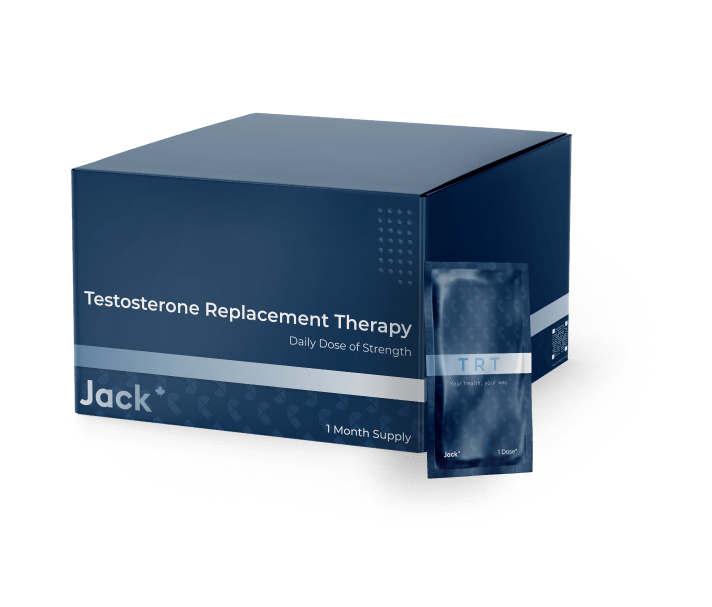




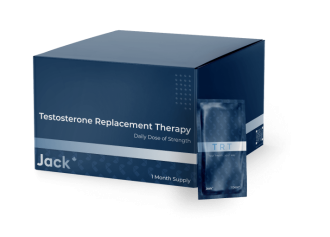
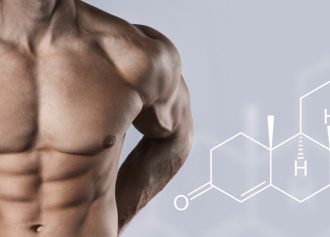
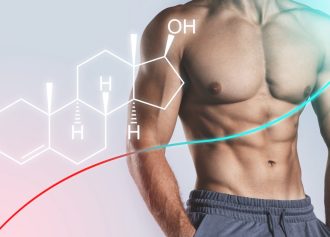
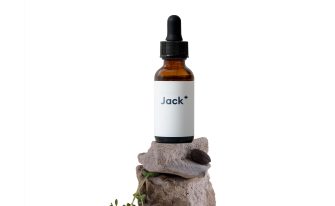
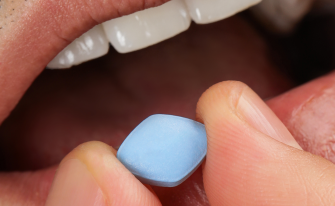



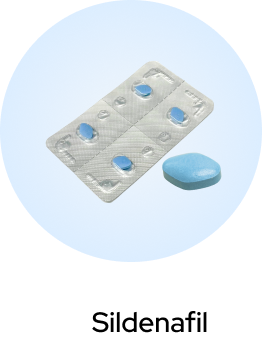
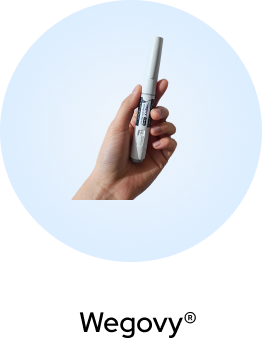
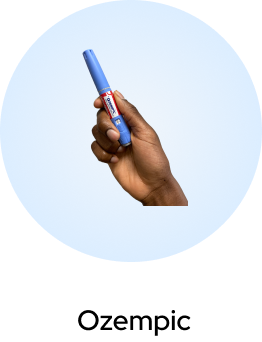


 (US)
(US)